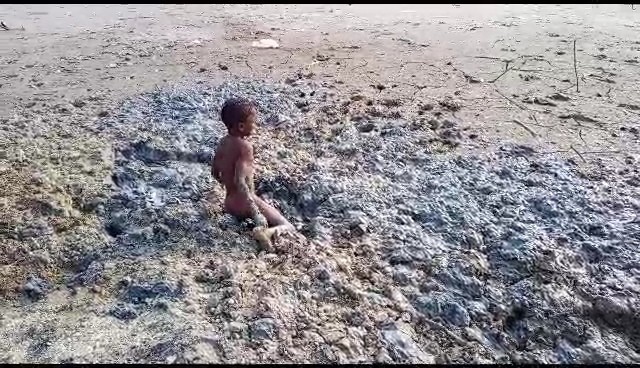Residents of Ahwiam in the Ningo-Prampram Municipality of the Greater Accra Region, have expressed worry over the lack of access to potable water supply in the coastal community.
According to the residents, the situation was disturbing, putting them at risk of contracting communicable diseases.
They noted that due to the situation, sometimes their children could not go to school as they had no water to bathe or wash their school uniforms.
Since the stream the residents relied on for water, has dried up, they have resorted to digging the ground around the stream to collect water for their daily activities.
Ms. Naomi Narh, a resident, said the community only gets water during the rainy season, as the stream they relied on often dries up during the dry season, adding that for over one year, no water flowed through their pipes.
Miss Nora Tetteh, another resident, stated that “We don’t have water from anywhere, the pipe does not flow, and our assemblyman and MP are not doing anything for us.”
She added that buying water from tank operators was also very expensive, as a gallon of water was being sold at GHS 5, which could not fully cater to their needs, pushing them to collect the worm-infested stream water.
“We beg them to intervene on our behalves. If we have sinned, forgive us and give us water. We bathe with the water we collect from the digging, cook with it, and also drink it. It is, however, full of salt, and for the fear of germs, I have to put antiseptic in it before bathing or my body will itch.”
Madam Patient Mensah stated that “We can see worms in the water; can you imagine if we bathe in it and the worms enter our private parts? Buying from the tank operators is also expensive; one gallon is 5 cedis, and that does not even reach us. The stream is also dried, so we dig around it to get water. We boil it before we can use it to cook and bathe our children.”
Master John Nartey, a pupil, said “I didn’t get water to bath so I cant go to school, therefore I have come to dig to see if I can get water.”
He disclosed that they use cutlass and hoes to dig before getting water to wash their uniforms, bathe and eat.
GNA





















